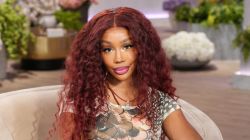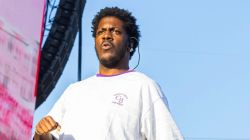Mulatto is doing damage control after rumors swirled accusing the 21-year-old of denying the existence of colorism.
The topic stems from an interview Big Latto did with HipHopDX at the 2020 BET HipHop Awards that was published on Saturday (November 28), where she expressed interest in changing her rap name because of its controversial racial undertones. Since then, social media app ClubHouse has become the breeding ground for debate about whether she should do so and Big Latto herself jumped in and joined the room titled “Why would you want to be named Mulatto” on Monday night (November 30).
The invite-only app allows its users to speak to one another in different “rooms” based on their topics of interest, but the rules bar anyone from screen recording and sharing to the rest of the world. Following her participation, rumors spread that the “Muwop” rapper denied the existence of colorism while defending her name, but there was no proof of it happening – and Latto says it’s because it simply didn’t.
“I WOULD NEVER SAY NO SHIT LIKE COLORISM DOESN’T EXIST!” she tweeted. “Please stop with the false narrative!”
In her original statement to DX, the Atlanta-bred rhymer said something is in the works in regards to her name but didn’t name specifics.
“I can’t say too much because we’re working on something right now, but I would be lying to say it hasn’t crossed my mind before,” Mulatto said. “It is a controversy that I hear and see every day as far as my name goes, so I would be lying to say no I never thought of that. But I can’t say too much because right now because it’s going to be a part of something bigger.”
In August, Latto told Uproxx that that she chose her name not to boast that she’s mixed race but to re-claim the word and make it positive.
“It’s just simply me explaining my story,” she said. “I did experience a different type of upbringing having two completely different cultures. One side of my family cooked this way, talked this way, celebrate this way, traditions is this way, and then one of the sides is different, and as a kid, I was just confused and kind of had to find my way in my identity. It’s just about an experience, and flipping that negative into something positive.”







I dont get the issue here. I remember hearing the term as a teen. It basically means mixed race, ususlly one parent having skin color darker than the other parent. So what’s about that ? Its a term. Maybe the person who invented it had bad intentions, but most of the people who actually use the term mean no harm. So someone thought it was cool and uses it as a stage name, who cares ? Whats wrong with milenials and gen. Z ? Stop getting offended over everything. You shouldn’t be speaking for everyone and try to intimidate people to find dumb shit offensive.
Real talk …
It’s usually mid age white bitches getting offended @ everything
do we have to see her tits too. how do you explain the tits. sick and dangerous people out there behind the scenes in music. of course what she won’t say is she is part of a race related agenda.
She look like a Dick Tracy villain
Damn lol
How many different phrases do we need for the same thing? Just say “mixed race” and I’ll know what the fuck you mean.
Shes a beautiful talented girl with a dope voice on the mic. Leave her the F alone.
Another wet mayonnaise culture vulture. Probably has a picture of white Jesus in her house